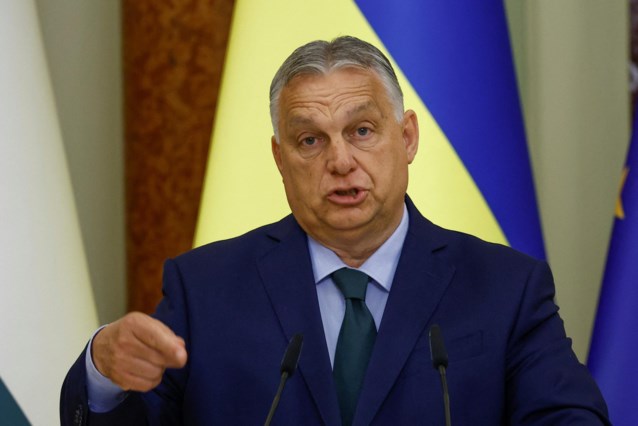Hungarian Prime Minister Viktor Orban, currently holding the EU presidency, is set to meet with Russian President Vladimir Putin in Moscow on Friday. This follows his recent visit to Kiev, Ukraine, where he called for a ceasefire without demanding that Russian troops withdraw from Ukrainian territory.
Orban’s trip to Moscow has raised concerns among some, as it comes after his visit to Ukraine and could jeopardize his relationship with the Kremlin. The timing of Orban’s visit to Moscow is particularly notable given the ongoing conflict between Russia and Ukraine. Some EU diplomats have criticized Orban for not consulting with the EU before arranging the meeting with Putin.
Outgoing President of the European Council, Charles Michel, has emphasized that the EU’s position is in support of Ukraine and against Russian aggression. Polish Prime Minister Donald Tusk has also expressed concern about Orban’s visit to Moscow. In response to criticism, Orban defended his actions on Facebook, stating that Hungary is taking steps towards peace during its EU presidency.
Orban’s alignment with Russia within the EU has been perceived as controversial by some. During his visit to Kiev, he called for a ceasefire without demanding that Russian troops withdraw from Ukrainian territory. The outcome of his meeting with Putin could have implications for EU-Russia relations and Hungary’s position within the EU.
The upcoming meeting between Viktor Orban and Vladimir Putin in Moscow raises questions about their relationship and Hungary’s perceived alignment with Russia within the European Union. While some argue that this meeting undermines Hungary’s relationship with Ukraine and raises concerns about its position within the EU, others see it as an opportunity for peace negotiations.
In recent years, tensions between Russia and Ukraine have escalated significantly, leading to an ongoing conflict in eastern Ukraine. This conflict has been a source of tension within the European Union (EU), where member states have taken different positions on how to address it.
One of those member states is Hungary, which has been accused of aligning itself too closely with Russia due to its close economic ties and political support for Russian policies in Europe.
Hungarian Prime Minister Viktor Orban’s decision to meet with Russian President Vladimir Putin in Moscow on Friday comes after his recent visit to Kiev and has raised concerns among some in Brussels about its implications for Hungary’s relationship with Ukraine and its position within the EU.
While some argue that this meeting undermines Hungary’s relationship with Ukraine and risks further alienating it from Western Europe, others see it as an opportunity for peace negotiations between Russia and Ukraine.
Regardless of what happens during this meeting between two powerful leaders from Central Europe and Central Asia respectively, one thing is certain: their actions will continue to shape not only their respective countries but also the wider geopolitical landscape in Europe and beyond.
